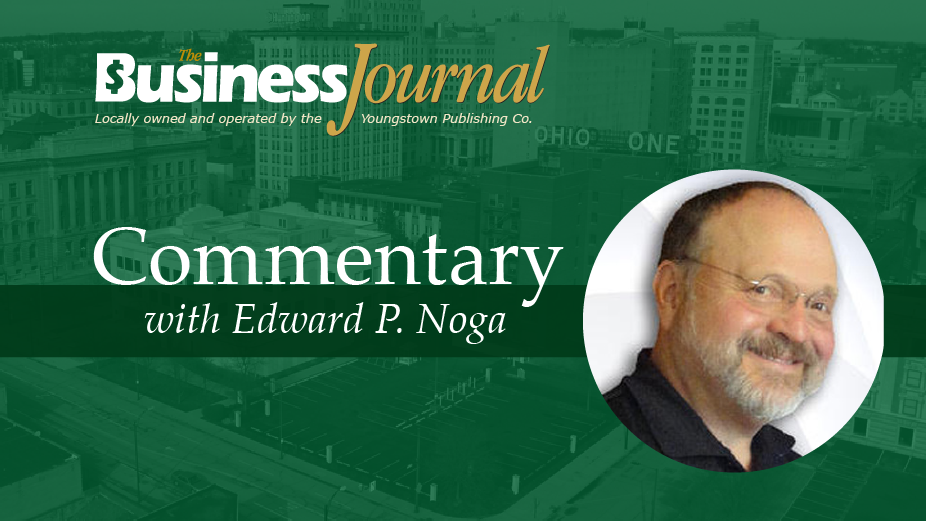By Edward P. Noga
YOUNGSTOWN, Ohio – The other day after supper, it was raining and cool outside. So I decided to go out for some things I needed.
It was just before 7 p.m. (The store I was going to is usually open until 9 p.m.) As I approached the corner where the store is located, I noticed the parking lot was virtually empty.
Pulling into the lot, I noticed a larger-than-normal sign on the door. I immediately knew what it said without getting out of my car. I got out anyhow to satisfy my curiosity.
Yes indeed, as I suspected, the sign stated that the store would close at 7 p.m. until further notice. I also noticed that the sign was dated three weeks earlier.
Not surprisingly, there was a statement about the lack of workers being the reason for earlier closure until further notice. Finally, I noticed that the daily opening time is now 10 a.m. instead of 9 a.m.
The next day, I went to another store that opened at 9 a.m. but also had a larger-than-normal sign in the window. This sign basically said the management was sorry that only a handful of workers were inside. They asked patrons for their understanding.
The two examples above are among the many that have become part of the new normal as we crawl out of the pandemic. We all know that the examples are not limited to store hours but have basically affected everything we do, everything we support, everything we buy and a host of other things. There is now a new heading in our lives and minds that goes something like this: Remember what it was like pre-COVID?
None of us can list anything that is a silver lining to the pandemic. BUT the two experiences I shared did give me pause for thought.
My thoughts were also prompted by the fact that our calendars remind us of the upcoming trifecta (as my doctor always says when referring to eating habits) of Thanksgiving, Christmas and New Year’s Day.
Each year as the holidays approach, the frenzy seems to begin earlier and earlier. We walk into a store and see seasonal items placed on the shelves way too early (we say). Regardless, we put them in our carts and take them home.
Some of the realities and reductions we have gone through the past 18 months have been serious and significant. They have rocked the economy and displaced many. They have limited our interactions and have brought unheard of suffering to many families. “When, oh when, will it end?” we play over and over in our minds.
At the same time, we have heard about and lived through many remarkable stories of compassion, help and hope. In many ways, all of us on some level have become a “first responder” in various settings. As these experiences are added to our life stories, we hear ourselves and others talk about getting our life priorities in better order.
In addition, in those quiet moments of our daily lives, we find ourselves thinking more and more about what is really important in the time we have on this planet.
Maybe a store doesn’t have to be open 24/7. Maybe more time with those we love and more time serving those in need can replace some of the inconveniences of our situation. Maybe a more careful use of the resources we have can enable us to see how important it is to cherish our waking moments and take advantage of the quieter moments that refresh us.
The definition of “first responders” has expanded greatly during these months. Hopefully our willingness to acknowledge their vocation has also expanded.
Years ago, when I was serving as pastor in another city, we had a parish member who had a small company. He was open five days a week and was the first one on site to open the door and turn on the lights. I remember asking him why he didn’t let one of the managers do the opening ritual. He answered that he wanted to be there in the morning to thank his few dozen employees for coming to work as they arrived each day.
Seems simple enough. Some might say it was unnecessary. Maybe so. But it was the meaning behind his routine that contributed to a good spirit and working relationship with his employees.
If I may return to my second opening example of the store that asked for our patience since only a handful of workers showed up, as I approached the one open register counter (out of five registers), there were two folks in front of me.
The first person handed the worker his credit card, received his purchased items and sales slip and said to the young lady behind the register, “Thanks for coming to work today!”
The next person concluded his transaction and said, “Me too. Thanks for being here!”
I dittoed the two comments. As I left and glanced once again at the sign of apology on the automatic doors, I thought that closing early isn’t all bad.
